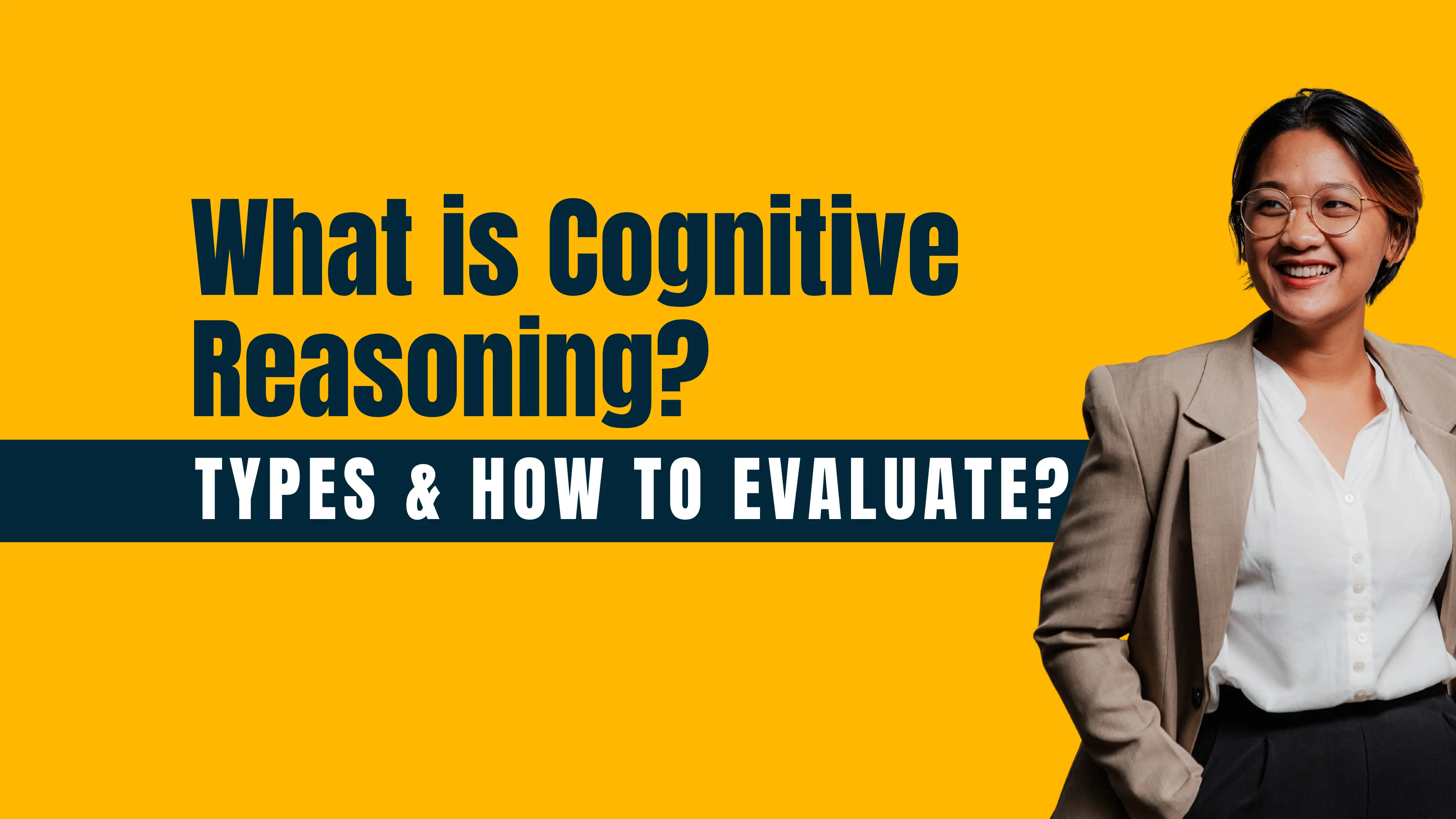Navigating the complex world of recruitment, employers constantly seek reliable methods to identify the best candidates. Pre-employment assessment tests have emerged as a cornerstone in this quest, offering a window into the diverse abilities and traits of potential employees.
These tests, varying widely in nature and focus, provide critical insights that go beyond what resumes and interviews can reveal. They stand as an essential component in shaping the workforce, ensuring that the hiring process aligns closely with the company's strategic goals and cultural ethos.
What Are Pre-Employment Assessment Tests?
Pre-employment assessment tests are standardized assessments used by employers during the hiring process to measure a candidate's skills, knowledge, personality, and other traits to determine if an applicant is suited for a specific role.
Employers use pre-employment tests to streamline the selection process, ensuring that candidates who progress to later stages are those most likely to excel in the role.
From cognitive abilities and technical skills to personality alignment and ethical standards, pre-employment tests aim to predict a candidate's potential for success in a given position. By incorporating these tests, employers strive to make more informed, objective, and efficient hiring decisions, enhancing the overall quality of their workforce.

Types of Pre-Employment Assessment Tests
The landscape of pre-employment assessment is diverse, encompassing various tests designed to evaluate different aspects of a candidate's qualifications and suitability for a job. Here's a detailed description of the 12 types of pre-employment assessment tests along with their pros and cons:
1. Cognitive Ability Tests
These tests evaluate a candidate's general mental capabilities, including their ability to process information, think critically, and solve complex problems. They often encompass a variety of challenges such as verbal reasoning, abstract thinking, and numerical problem-solving tasks. Cognitive ability tests are essential for roles that require quick learning, adaptability, and strategic thinking.
- Pros: These tests effectively predict problem-solving abilities and learning capacity, key indicators of job performance and adaptability.
- Cons: They may not always reflect the practical skills or hands-on experience that are crucial for certain job roles.
2. Skills Assessment Tests
Skills assessment tests are tailored to measure specific job-related skills. Depending on the role, they can include technical tasks (like coding for IT positions), practical exercises (such as drafting a marketing plan), or specific skill tests (like typing speed for administrative roles). They are particularly useful for roles where technical proficiency is a key performance indicator.
- Pros: Directly assesses job-specific skills, providing a clear indicator of a candidate's ability to perform specific tasks.
- Cons: Can be time-consuming to administer and score, and may not accurately measure a candidate's potential for future growth or adaptability if you don't choose the right tool for your requirement.

3. Personality Tests
Designed to understand a candidate's character traits and behavioral tendencies, these tests assess how well an individual's personality aligns with the job requirements and company culture. They often measure traits like extraversion, agreeableness, and openness to experience, which are crucial for teamwork, leadership roles, and customer-facing positions.
- Pros: Useful in assessing a candidate's cultural fit and work style, which can be critical for team dynamics.
- Cons: Subject to the candidate's self-perception and bias, and may not always be a reliable predictor of job performance.
4. Emotional Intelligence Tests
These tests gauge a candidate's ability to perceive, control, and evaluate emotions, both in themselves and others. Emotional intelligence is particularly important in roles that involve managing teams, customer service, and situations requiring empathy and interpersonal skills.
- Pros: Assesses critical interpersonal and self-awareness skills, important for leadership and collaborative roles.
- Cons: Challenging to measure accurately and objectively, as responses can be subjective.
5. Integrity Tests
Aimed at assessing a candidate’s ethical standards and honesty, these tests are key for roles where trustworthiness is paramount. They often include scenarios to gauge a candidate’s likelihood of engaging in dishonest or unethical behavior.
- Pros: Helps identify candidates with high ethical standards and honesty, important for trust-based roles.
- Cons: Answers can be easily manipulated or faked, and may not always predict future behaviors accurately.
6. Job Knowledge Tests
These assessments measure a candidate’s expertise in a particular field or job function. They test for a comprehensive understanding of technical or theoretical aspects relevant to the position, such as legal knowledge for a lawyer or medical knowledge for a healthcare professional.
- Pros: Evaluates a candidate's knowledge in specific professional areas, ensuring they have the necessary expertise.
- Cons: Might not indicate the candidate's ability to apply theoretical knowledge in practical situations.
7. Physical Ability Tests
Essential for roles that require physical exertion or labor, these tests measure a candidate’s physical strength, endurance, and flexibility. They are critical for jobs like warehouse operations, construction, and roles in the emergency services sector.
- Pros: Essential for physically demanding jobs to ensure candidates can meet the physical requirements of the role.
- Cons: Can raise potential discrimination issues and are not applicable for all job types.
8. Language Proficiency Tests
These tests assess a candidate's ability to effectively communicate in a specific language, which is crucial for roles that require clear and precise communication. They evaluate both written and verbal language skills, including grammar, vocabulary, and comprehension.
- Pros: Assesses a candidate's ability to communicate effectively in necessary languages, crucial for roles requiring specific linguistic skills.
- Cons: May not fully capture a candidate's conversational abilities or cultural nuances in language use.
9. Psychometric Tests
These tests evaluate a candidate’s mental abilities and personality characteristics. They typically combine elements of cognitive testing with personality assessment to provide a holistic view of a candidate’s mental aptitude and character traits.
- Pros: Provides insights into a candidate's mental capabilities and behavioral style, offering a comprehensive view of their personality and cognition.
- Cons: Can be abstract and not always directly linked to specific job performance criteria.
10. Situational Judgement Tests
These present candidates with hypothetical job-related scenarios to assess their judgment and decision-making skills. They are useful for understanding how a candidate might behave in complex work situations, particularly in managerial or customer-facing roles.
- Pros: Simulates real job scenarios to assess a candidate's decision-making and problem-solving skills in a practical context.
- Cons: Specific scenarios may not cover all aspects of a job, limiting their scope.
11. Background Checks
Involving comprehensive reviews of a candidate's past, including educational qualifications, employment history, and any criminal records. These checks are crucial for verifying the authenticity of information provided by the candidate.
- Pros: Verifies the accuracy of a candidate's resume, including work history and educational qualifications, reducing the risk of fraudulent claims.
- Cons: Can be time-consuming and may raise privacy concerns for candidates.
12. Drug Testing
These tests are conducted to ensure candidates are not using illegal drugs, which is especially important in safety-sensitive industries. They typically involve biological sample testing to detect recent drug use.
- Pros: Ensures a safe and drug-free workplace, particularly important in safety-critical industries.
- Cons: Raises privacy concerns and legal implications, especially in regions with strict privacy laws.
Each type of pre-employment test offers unique insights into a candidate's suitability for a role and brings its own set of benefits to the hiring process, allowing employers to make more informed and strategic hiring decisions.
By choosing the appropriate tests for each role, organizations can significantly enhance the quality and effectiveness of their recruitment efforts.
Benefits Of Pre-Employment Assessment Tests
Incorporating pre-employment assessment tests into the recruitment process brings a multitude of benefits to organizations. These benefits not only enhance the efficiency and effectiveness of the hiring process but also contribute to the long-term success and stability of the workforce. Here are the detailed advantages of utilizing these tests:
Enhanced Quality of Hires
Pre-employment tests objectively measure candidates' abilities, skills, and personality traits, ensuring that those selected for roles are truly the best fit. This leads to hiring individuals who are not only skilled but also aligned with the job requirements and company culture, thereby elevating the overall quality of new hires.
Streamlined Recruitment Process
With a high volume of applicants for most positions, employers face the challenge of identifying the most suitable candidates efficiently. These tests quickly filter out individuals who may not meet the job's technical or cognitive requirements, allowing recruiters to focus on promising applicants.
By quickly identifying the most suitable candidates, these tests significantly reduce the time spent on sorting through applications and conducting initial screenings. This streamlining leads to a more efficient recruitment process, allowing HR teams to focus their efforts on engaging with top candidates.
Enhanced Predictability of Job Performance
Pre-employment tests offer objective metrics to predict how a candidate may perform in a role. Unlike subjective evaluations, these tests provide concrete data that correlate with job success, reducing the uncertainty in hiring decisions.
Lower Turnover and Increased Employee Retention
Correctly matched candidates are more likely to be satisfied in their roles and stay longer with the company. By accurately assessing candidates' skills and compatibility with the role, employers can reduce the likelihood of turnover.
Hiring individuals who are well-suited for their roles means less time and resources spent on training, re-hiring and saves costs associated with frequent hiring, and builds a stable, committed workforce.
Objective and Fair Candidate Evaluation
Pre-employment assessments provide a standardized method of evaluation, minimizing unconscious biases that can occur in interviews. This objectivity ensures a fair hiring process where candidates are judged solely on their merit and suitability for the role.
Identification of Potential Training and Development Areas
These tests can highlight areas where a candidate might need additional support or training, allowing organizations to proactively plan for employee development. This foresight ensures that new hires are fully equipped to excel in their roles from the start.
These tests can uncover abilities or traits in candidates that might not be evident through resumes or interviews. For instance, a candidate might possess latent skills or aptitudes that are highly valuable to the organization but not explicitly mentioned in their application.
Compliance with Legal and Hiring Standards
Properly designed and implemented pre-employment tests help organizations adhere to legal hiring practices and ensure compliance with pre-employment laws and standards, helping organizations avoid legal pitfalls.
They also standardize the recruitment process across different departments or locations, ensuring consistency in hiring quality. This compliance reduces the risk of discrimination lawsuits and ensures a fair, equitable hiring process.
Safety and Integrity in the Workplace
Tests such as drug screenings and integrity assessments ensure that new hires meet the company’s safety and ethical standards. This is particularly crucial in roles that are safety-sensitive or require a high level of trust.
Improved Team Dynamics and Collaboration
Understanding the personality and behavioral styles of potential hires helps in assembling teams that work well together. This knowledge leads to better team cohesion, collaboration, and overall productivity.
Sustainable Organizational Growth
By ensuring that employees are well-suited to their roles and the company culture, pre-employment tests contribute to lower turnover rates, higher job satisfaction, and, ultimately, the organization's long-term growth and success.
Data-Driven Insights for Continuous Improvement
The data gathered from these tests provide valuable insights into the effectiveness of the hiring process. Organizations can leverage this data to refine their recruitment strategies, make informed decisions, and continuously improve hiring practices.
Cultural Fit
Beyond skills and knowledge, it's crucial for candidates to align with the company's culture and values. Certain pre-employment tests can gauge personality traits and work preferences, helping to predict how well a candidate will integrate into the team and company culture.
Conclusion
In summary, pre-employment tests offer a practical & equitable solution for employers to enhance the effectiveness and fairness of their hiring process.
They arm employers with valuable insights into a candidate's capabilities and potential, paving the way for a competent and well-integrated workforce. This strategic approach not only aligns with organizational objectives but also elevates the overall recruitment quality.
Want to know more on how WeCP can help you out? Try WeCP for free or Schedule a Call with us.



.png)








.svg)